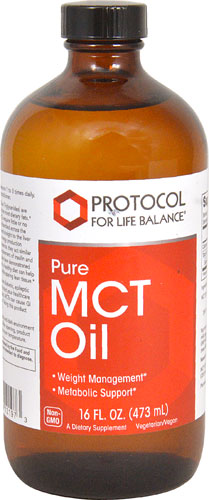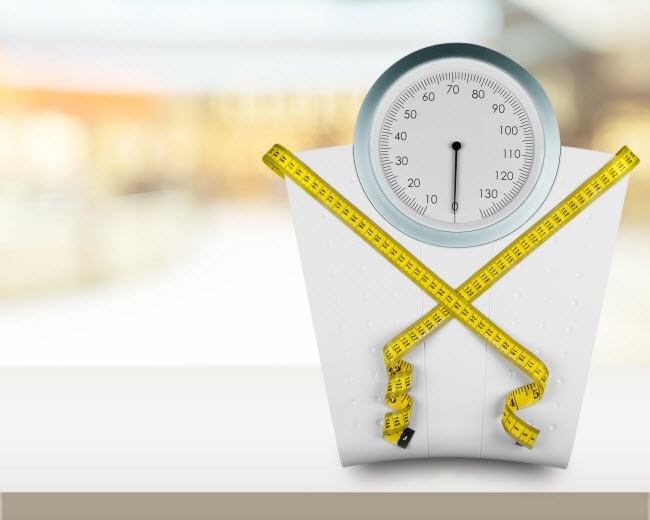The keto diet isn’t like most other diets—it was initially used for treating epilepsy patients thanks to the anti-inflammatory results of ketosis. UCSF reported on 2018 research of the ketosis diet, explaining “Blocking glucose metabolism worked to suppress inflammatory genes, which in turn helped stroke healing.”
However, there have been no clinical studies to determine the long term effect of this type of diet on humans. That’s why educating yourself is critical before trying it for yourself.
See what these nutrition experts have to say about keto diet weight loss before speaking with a health professional and making any major dietary changes.
Be wary of eliminating an entire food group
The keto diet has benefits and drawbacks, suggests Hillary Webster, ND, who likes this diet as a way to jump-start weight loss for those who may be sensitive to carbs. She explains, “I love that it teaches someone to live without sugar, because we know sugar has negative effects on the body, and that once the sugar cravings subside, it crushes appetite which can be very helpful for some people.”
Despite this value, Webster doesn’t see this as a suitable long-term solution, much less a solution for everyone: “Athletes, or anyone hitting the gym regularly, need the extra carbohydrates for fuel and should avoid a keto diet if they work out with intensity on a regular basis. Carbs are fuel for working muscles and while you can generate fuel from fat stores when exercising, that's like trying to swim upstream.”
She also warns of hormonal swings for women, who may experience such symptoms from excessive fat, especially animal fat. “I personally like to follow a lower-carb diet, but too much animal fat, such as fat from dairy, promotes PMS symptoms,” says Webster.
Look for signs it's not working
The keto diet gets a lot of attention, and Catherine Crow, NTP wants you to remember: not every diet is perfect, even if it starts out well. Crow explains, “I have noticed that many [people] do well on low-carb diets at first, and some people even thrive for the first year or two. Then things can start to crumble.”
Issues can arise with lowered body temperature, increased food cravings, impaired liver function and more. Crow knows this may not be the case for everyone, so she tells clients to look for the following side effects of the keto diet, which can indicate a problem:
- Intense cravings for sugar and sweets (you may even find yourself obsessing over paleo desserts)
- Strong cravings for chocolate and salt, indicating a loss of salt and magnesium due to the stress response and hormones cortisol and aldosterone
- Low body temperature (below 97.8 upon waking)
- Low pulse rate
- Poor digestion, bloating, constipation and slowed transit time
- Cravings for “off diet” foods
- Low energy/fatigue
- Weight gain
- Cycle/hormonal changes
- Edema
Supplement with minerals
You need to supplement with minerals to offset acid production, says Suzanne Dixon, MPH, MS, RDN. “Your body must maintain your blood pH within a narrow range to stay healthy. The normal range of blood pH is 7.35 to 7.45.” That lower pH means your body is more acidic, while a higher pH means your body is more alkaline (basic).
Dixon explains, “Ketosis creates excess acid production, which starts to pull your pH down. To maintain your normal blood pH, your body needs ‘basic’ minerals.”
This becomes a problem because the biggest source of basic minerals in your body is: your bones. When your body needs these minerals, including calcium and magnesium, it begins pulling them from your bones to offset the excess production of acid.
The consequences of not taking care of this potential issue can be dangerous: “If you do not take mineral supplements to supply those acid-buffering substances, your body will use your bones to maintain normal blood pH. To put it simply, your body would rather degrade your bones than have your blood pH go out of the normal range!”
Work with a nutritionist or dietitian
As the Keto Diet becomes more mainstream, health professionals, including Ginny Leavitt, Certified Health Coach, Weight Management Specialist and Founder of Ginny Leavitt Health Consulting, suggest that you do two things: educate yourself and work with a registered dietician.
Leavitt explains, “Typically, it's assumed that all fat is good fat, and all carbs are bad, thus creating an imbalance in nutrition. I highly recommend a structured plan that has been written by a registered dietitian to ensure that there are no major nutrient deficiencies, which can naturally occur when entire food groups are eliminated.”
Working with a professional ensures that you’re giving your body the nutrients it needs, but this can be helpful for mindset challenges as well, says Leavitt; “It's also important to help coach a client's mindset so they do not develop a belief that a piece of bacon is healthier (or more ok) to eat than a strawberry.”
Don’t start before you're ready
Starting before you’re mentally ready or before you’ve gotten rid of trigger foods makes it much harder to follow the Keto Diet. Lara Clevenger MSH, RDN, CPT explains: “A keto diet is a big change from the Standard American Diet. Don't start before you're ready to commit, it's not a fad diet, it's a lifestyle.”
Before starting, Clevenger recommends cleaning out your kitchen: “You'll want to make sure you clean out your pantry and fridge from any foods that may trigger you to want to eat carbohydrates (chips, cookies, processed snacks).”
What should you replace those foods with? Clevenger suggests filling your pantry with:
- Nuts
- Seeds
- Canned healthy proteins like Wild Planet tuna and sardines
- Healthy oils like olive oil, coconut oil, avocado oil
- Olives
- Unsweetened coconut shreds or "chips"
- Almond flour, coconut flour, flax meal, chia seeds
Don’t forget to keep plenty of healthy proteins in your fridge, like grass-fed beef, pasture raised poultry and pork, wild caught fish. Be sure to have plenty of green leafy vegetables like spinach, lettuces, kale, along with avocados, onions, broccoli, cauliflower, brussel sprouts, peppers, cucumbers, and berries.
To Keto or not to keto?
The keto diet can be a good fit for specific people, but one sentiment was clear with every single nutrition expert: don’t do this without educating yourself and working with a professional. This diet can have great results, so avoid the potential dangers by making an appointment with a nutrition professional, first and foremost. Lean on this person for advice and guidance to ensure safety and success, allowing you to be the healthiest, happiest version of yourself.




